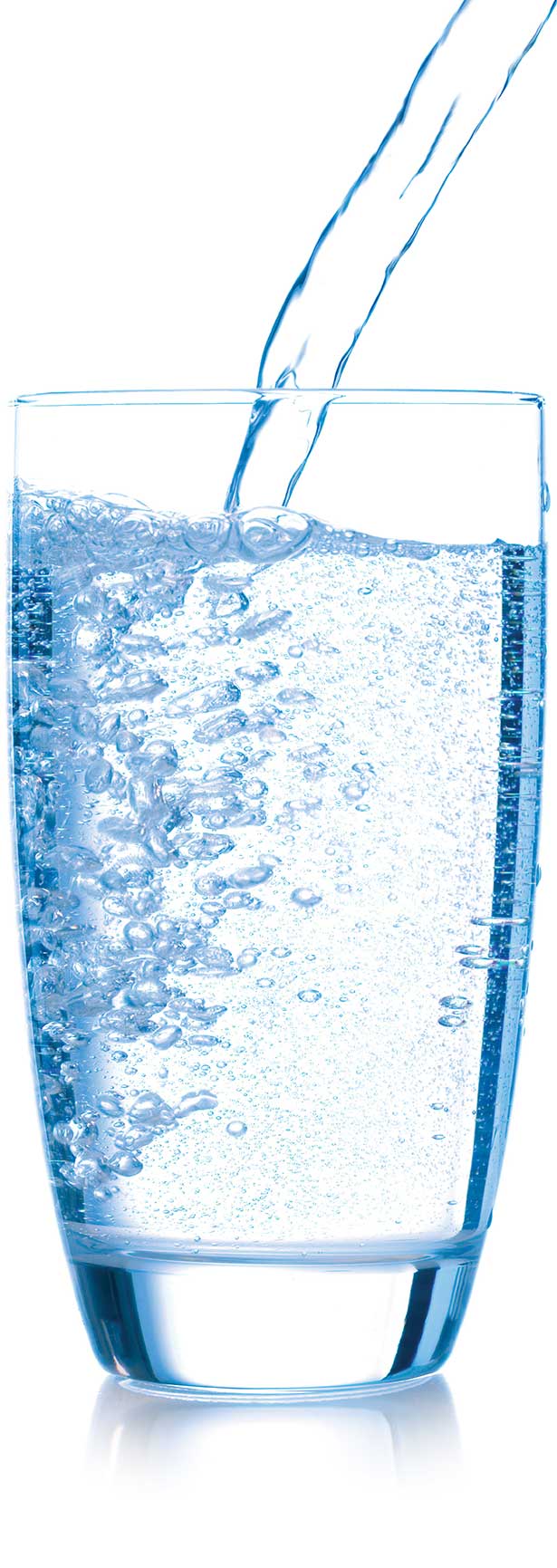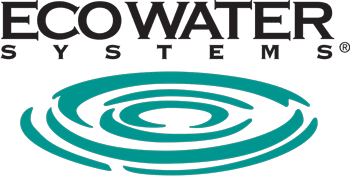What's in My Water?
Does your water taste funny? Smell odd? Look, well… not normal? We can help.
If you’ve noticed one indication, several, or are simply concerned with the quality of your water, our EcoWater professionals are qualified to perform an easy and comprehensive in-home water analysis to recommend the right solution for you.
Whether it is hard water treatment or a remedy for another water issue, stop worrying about “what’s in my water” and take action so you can get back to enjoying your water.
To receive a FREE water test from the experts at EcoWater Systems of Mid-Missouri, contact us today!
Get Your Free Water Test
Our EcoWater Professionals can analyze your water for these common problems:

Hard Water
Show More
Hard water is caused by high mineral content in the water. These minerals are calcium and magnesium. They accumulate in your water through the water’s natural cycle. Calcium and magnesium leech to water as it runs over rocks and through soil. The threat of hard water varies across the country. Do you live in a hard water area?

CHLORINE & CHLORAMINES
Show More
Chlorine is often used as a disinfectant. It’s commonly found in swimming pools so bacteria doesn’t collect in the water making it smell. Many water treatment centers add chlorine to their water so harmful bacteria doesn’t make its way to your house. But too much chlorine can be harmful to your health.

IRON
Show More
If your water ever tastes metallic or leaves behind a distinct reddish stain, iron is present. Much like hard water, iron is present because the water is flowing over iron-bearing rocks. There are 2 types of iron contamination: ferrous and ferric. A water softener is the best way to fight back against iron.

Manganese
Show More
Manganese is a naturally occurring mineral that lives in sediment, rocks and soil. Manganese is an essential mineral, but a high concentration can be unhealthy to you and your home. The mineral leaves dark marks on water-using appliances and can stain sinks and drains.

Hydrogen Sulfide
Show More
The smell of rotten eggs is not pleasant. You can blame this on hydrogen sulfide. This gas smells like sulfur and is created by oil deposits and decaying vegetation beneath the earth’s surface. It gets in your water through metal corrosion and having a faulty water heater.

Sediment & Cloudy Water
Show More
Cloudy, dirty water is caused by sediments. These come from sand, dirt or other inorganic matter getting into wells, or by run-off of matter into the water supply. The cloudiness is simply these materials floating in the water. Sediments are more of a visual concern for people and can be removed by most filtration systems.

LOW pH
Show More
If you’re noticing bluish-green stains inside your toilet tank or on your fixtures, your water has a low pH level. Anything measuring less than 7 pH is considered acidic. Your water is acidic because of pollutions, whether it’s from airborne pollutants, runoff from a mining spoil or the decomposition of plant materials.

Arsenic
Show More
Arsenic is odorless and tasteless. The only way to identify its presence is to have the water tested through a state-certified lab. Arsenic is extremely toxic and known to cause cancer and hurt your immune system, leaving you susceptible to falling ill. This chemical gets in your water naturally through either erosion or industrial runoff.

Lead
Show More
Lead differs from other contaminants in that it rarely occurs naturally in a raw water supply. It gets in your water after it leaves the treatment plant. It dissolves in your water from old lead piping, lead solder or brass faucets. There is no safe level for lead exposure.

Nitrates
Show More
Nitrates often find their way into your water supply through the use of fertilizer. Spring water is vulnerable to this type of contamination when excess fertilizer isn’t fully absorbed by soil or crops. People in rural communities should test their water for nitrates because it is odorless and tasteless.

Microbes
Show More
Microbiologicals include any type of organic materials such as algae, mold and bacteria. These materials cause your water to taste and smell earthy or woody. State and federal governments require water distribution centers to provide biologically safe water, but private wells do not.

Pharmaceuticals
Show More
The Environmental Protection Agency requires water treatment plants to test for nearly 90 contaminants. Pharmaceuticals aren’t on the list. Traces of pharmaceutical compounds have been found in drinking supplies across North America, but it’s not known how these pharmaceuticals are a risk to your health.

Ecowater
why ecowater

Industry Leader
EcoWater is one of the world’s largest manufacturers of water treatment systems and leads the industry with game-changing innovations.

HIGHEST RATINGS
EcoWater products and services consistently earn top ratings for quality.

ECO-FRIENDLY
Our solutions are designed with the highest levels of efficiency in mind — reducing the amount of salt, energy and water consumed, reducing greenhouse gas emissions and are carbon neutral. Also, the use of our products helps reduce the number of plastic water bottles that end up in the landfill, saving you money and safeguarding our environment.

COST SAVINGS
Our water softener systems are designed to help you save money by using less energy and maximizing the life and efficiency of your appliances.


CUSTOM SOLUTIONS
We’ll tailor a solution to meet your unique needs, and handle everything from the installation of an under sink water filtration system to regular maintenance of your water softener.



PRODUCTS THAT FIT YOUR LIFESTYLE
Whether you’re a growing family with thirsty kids, building your retirement home, or need to remove contaminants from municipal or well water supplies, EcoWater has a solution that’s right for you.
